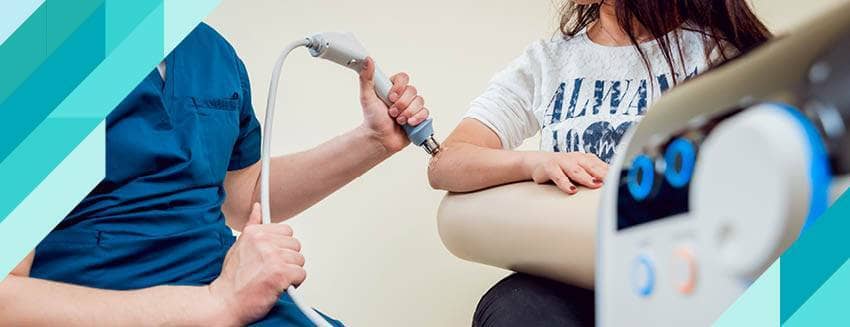
At the Neurological Rehabilitation & Swallowing Disorders Symposium organized by Üsküdar University Physiotherapy and Rehabilitation Department, many topics from rehabilitation and treatment methods to applications were discussed. Dr. Faculty Member Yıldız Erdoğanoğlu from Üsküdar University Physiotherapy and Rehabilitation Department said that robot-assisted therapies, body weight supported treadmill, functional electrical stimulation, virtual reality, brain stimulation, actuator devices and brain-machine interfaces support physiotherapists' applications to improve individual patient level. Erdoğanoğlu noted that new technologies provide many advantages for application in therapy, providing a much higher motivation compared to traditional treatment.
Damage to neurons in the brain after brain trauma, stroke, Parkinson's or other neurological diseases that occur after physical accidents or neurological diseases cause motor disorders that negatively affect the daily life of the individual. The treatment of these disorders, rehabilitation practices and technological methods used were discussed at the Neurological Rehabilitation & Swallowing Disorders Symposium organized by Üsküdar University Physiotherapy and Rehabilitation Department.
The opening speeches of the symposium, which was held at Üsküdar University Central Campus Nermin Tarhan Conference Hall and honorary chaired by Hacettepe University Faculty Member Prof. Dr. Ayşe Karaduman, were made by Physiotherapy and Rehabilitation Department Head Prof. Dr. Defne Kaya and Dr. Faculty Member Çetin Sayaca from the Faculty of Health Sciences.
Prof. Dr. Defne Kaya thanked Üsküdar University and the participants who provided the biggest support in organizing the symposium and wished the symposium to be productive. As a teacher, Prof. Dr. Kaya congratulated Mustafa Kemal Atatürk, martyred teachers and all teachers on Teachers' Day.
Unknowns in neurological rehabilitation will be discussed
Symposium Chairman, Dr. Faculty Member Çetin Sayaca from Üsküdar University Physiotherapy and Rehabilitation Department, said that they planned the main theme of the symposium on "Neurological Rehabilitation" and "Swallowing Disorder", which is a dysfunction that often occurs as a result of a neurological disease.
Stating that the main idea of the symposium program is to seek an answer to the question "What are the less talked about topics in Neurological Rehabilitation?", Dr. Faculty Member Çetin Sayaca said, "We aim to have a symposium where we can find answers to the issues and questions that we encounter from time to time in the rehabilitation process but that we pass over or do not seek answers for different reasons. In these issues, our valuable professors from different branches, who are experts in their fields and indispensable for the rehabilitation team, take part in the symposium."
It is aimed to raise awareness about swallowing disorders
Sayaca stated that the symposium is to bring together different disciplines involved in the rehabilitation process to talk about the issues that affect the result but have less idea, "We aim to ensure that rehabilitation team members have information at the symposium. In addition, we aim to raise awareness about swallowing disorder, which is a dysfunction, to prevent individuals with swallowing disorder from being left alone with swallowing problems and to draw the attention of both society and healthcare professionals by showing that it is a disorder that can be recovered as a result of proper rehabilitation."
Is robotic rehabilitation really effective?
In the session titled "Little Known in Neurological Rehabilitation", Dr. Yıldız Erdoğanoğlu from Üsküdar University Department of Physiotherapy and Rehabilitation said "What are the Technological Innovations in Neurological Rehabilitation? Is Robotic Rehabilitation Really Effective?"
Stating that we move by sending movement commands from neurons in our brain to our muscles, Dr. Faculty Member Yıldız Erdoğanoğlu said, "Signals are transmitted from neurons to neurons through synapses that can adjust their relative strength and allow us to learn and improve movements. Damage to neurons or interruption of signaling pathways in the brain after a traumatic brain injury, stroke, spinal cord injury or other neurological disease causes motor impairments that negatively affect our daily lives. Resolving the factors associated with the injury, repeated activity and training triggers neuroplasticity that changes the central nervous system to improve functionality."
Developing technology also facilitates physiotherapists
Prof. Dr. Yıldız Erdoğanoğlu stated that while the use of technology, which is developing rapidly and non-stop today, offers us convenience both at home and in our social lives, it also offers new opportunities for physiotherapists and patients to evaluate both advanced and effective treatment methods and the effect of intervention.
Robot-assisted treatments are coming into play
Noting that in neurological rehabilitation, robot-assisted therapies, body weight-assisted treadmills, functional electrical stimulation, virtual reality, brain stimulation, actuator devices and brain-machine interfaces support the applications of physiotherapists to improve the individual patient level, Dr. Faculty Member Yıldız Erdoğanoğlu noted that these applications can come into play where the effects of traditional approaches are limited.
Patient motivation can be increased
Prof. Dr. Yıldız Erdoğanoğlu stated that while applications to patients are planned in a task-specific, variable and efficient way with these new technologies, they can also provide many options in terms of providing high motivation in patients.
New methods can make patients independent
Stating that these technological methods help to improve the functions of the shoulder, elbow, wrist and hand while supporting patients to walk, and that they can make patients independent faster in daily life, Dr. Faculty Member Yıldız Erdoğanoğlu said, "Scientific evidence shows this. It is important to know that some new technologies still have a few problems that normally outweigh the advantages, especially in terms of cost and it is useful to consider both advantages and disadvantages in patient selection."
Neurological rehabilitation and swallowing disorders were discussed
The symposium consisted of sessions titled "Little Known in Neurological Rehabilitation", "Rehabilitation in Pediatric Neurological Diseases", "Rehabilitation in Adult Neurological Diseases" and "Multi-disciplinary Approaches in Swallowing Disorders" and "Rehabilitation Approaches in Swallowing Disorders".
Üsküdar University NP Etiler Medical Center Psychiatry Specialist Assoc. Prof. Dr. Duygu Kaya Yertutanol, "How should a psychiatrist approach the fear of swallowing?" Üsküdar University Faculty Member Zeynep Bahadır Ağce made her presentations titled "What are the Principles of Occupational Therapy Application?".





